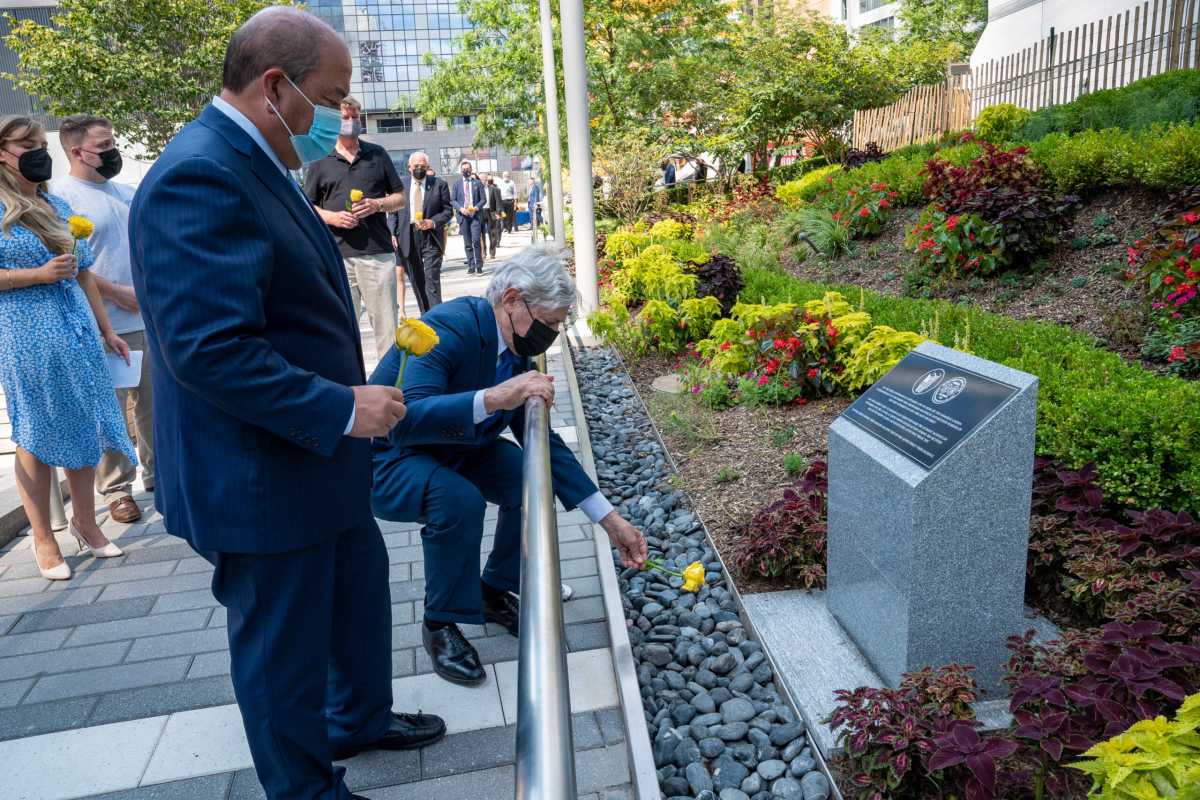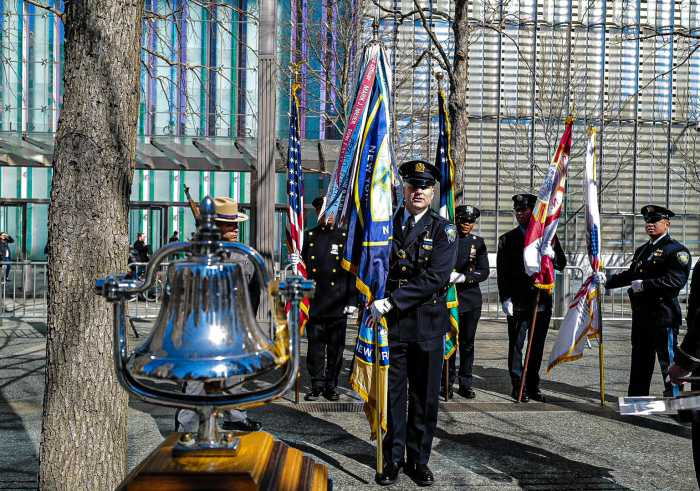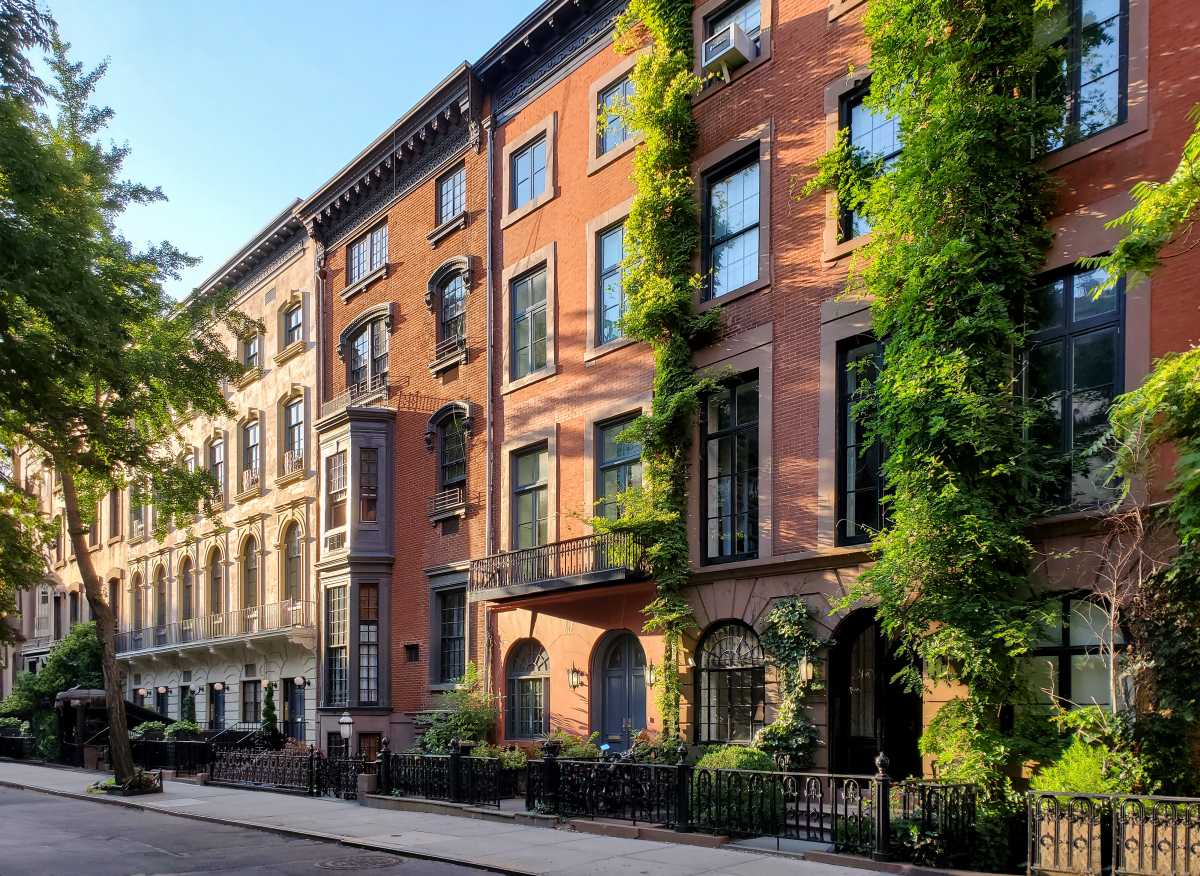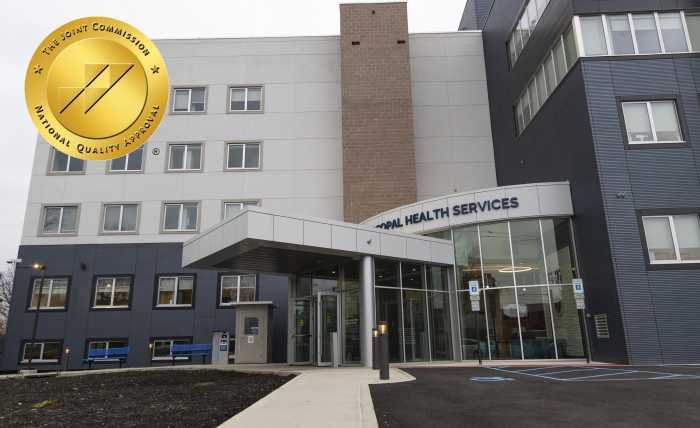It is early in the afternoon on Sept. 15, just four days after America remembered the 20th anniversary of the Sept. 11, 2001 terrorist attacks that shook the country to its core.
A middle-aged woman sits in Liberty Park, on the steps below a garden of vibrant greens, reds and yellows. A new plaque in its center reads: “May this Garden serve to remind us of those who made the ultimate sacrifice on September 11, 2001, as well as those whose selfless action during the recovery has led to injury, illness and death long after that tragic day.”
For the past six years, Kathy Liakas has come to this spot at least once a month. She sits adjacent to the St. Nicholas Greek Orthodox Church and National Shrine to pray and watch the construction of the church. A Greek Orthodox herself, Liakas said she cannot wait to pray inside of the church when the construction is done.
But this month, while sitting and praying for those who lost their lives on 9/11 and for peace in the world, she noticed the new plaque sprouting out of the garden.
On Saturday, Sept. 11, The Port Authority of New York and New Jersey dedicated a Memorial Garden honoring the sacrifices made by Port Authority first responders and employees who lost their lives during the 9/11 attacks and in the 1993 bombing, as well as Port Authority employees who died as a result of 9/11 rescue and recovery efforts.
Members of the Port Authority Police Department were the first to respond to the 9/11 attacks. That day, the PAPD suffered the largest loss by any police department in the history of U.S. law enforcement.
On the day of the attacks, 84 Port Authority employees died, including the 37 Port Authority police officers and 13 civilian members of the Port Authority’s World Trade Department, who were recognized as first responders by the US Department of Justice.
New Memorial Garden to be an ‘eye opener’
The Port Authority of New York and New Jersey continued to work tirelessly after 9/11 to help rescue people, identify missing people, bring closure to families and to rebuild the area.
“When we were doing the rescue and recovery, in the beginning, the site was void of life,” said Detective Lieutenant Commander John Ryan, who has been a part of the Port Authority of New York and New Jersey Police Department for 42 years. “You didn’t see any birds, you didn’t see anything there.”
It wasn’t until a spring day in 2002 that some of the trees on the west street began to bud and birds slowly returned to the area, Ryan said. Now, the site surrounding the memorial is vibrant — flowers bloom and birds fly overhead again.
Today, the Port Authority is still helping to rebuild, and the new Memorial Garden provides family and friends a space to go to remember those they lost on 9/11 and those who died years later from diseases and illnesses they contracted while doing post-9/11 rescue and recovery.
Brian Ahern, who became a Port Authority police officer in February 2001 and is the pipe major of The Port Authority Police Department Pipes and Drums Band, said he hopes the memorial not only provides a space of reflection, but a place for education and realization.
“Whether it be someone who lost a loved one or just somebody coming there to visit the Trade Center from another state or country, one would only hope they’ll stop, they’ll read the plaque and it will be an eye opener to realize that even though thousands died on 9/11, over the past 20 years, thousands more have died from diseases from doing the rescue and recovery at the World Trade Center,” Ahern said.
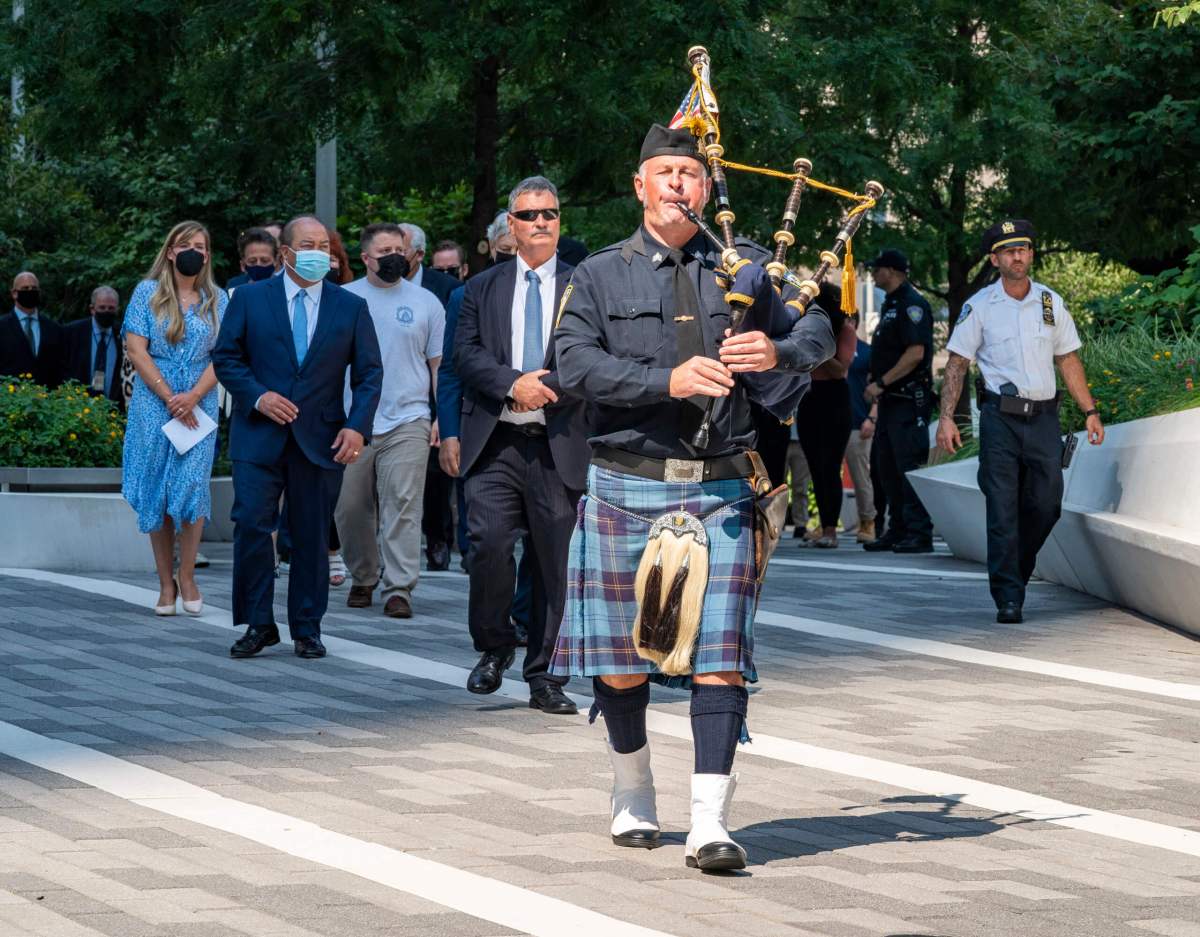
Ahern was a part of helping rescue people in the days following 9/11.
“Everyone that was down there was using their hands, shovels and buckets in order to do whatever they needed to do so that they could possibly bring some closure to families who lost loved ones,” Ahern said. “And that’s why you’re seeing so many people, 20 years later, contracting diseases from working down there and unfortunately passing away from these diseases as well.”
For the people who were not found, memorials can help provide some closure.
“It definitely does help people cope and remember, and it’s a very solemn area where people can just meditate and think about their loved ones that are no longer around,” Ahern said.
A place to ‘mourn’ and ‘reflect’
The area around the Memorial Garden attracts people for all sorts of reasons. Some enjoy lunch on the steps nearby while others conduct work meetings.
Nicole Perry, who works near Trinity Park and is the daughter of a former NYPD officer, enjoyed lunch at the memorial on Wednesday. She said she was happy to see a memorial honoring police, and that it was nice to see memorials still cropping up two decades later.
Perry said the whole area for the memorial is “pristine” and “quiet,” making it a good place to “mourn” and “reflect.”
Rachel Fluker, who also sat near the memorial on Wednesday, said she was working near the World Trade Center on the day of the attacks. She remembers taking a pair of sneakers from a man who was handing them out to women who were wearing heels as people evacuated the area. She said memorials like this do help families find closure, especially for the families who never found those they lost.
Lieutenant Commander stressed the importance of memorials like the one at Trinity Park, because they serve as a reminder of the events through the course of history that have had a significant impact — while also signifying how the community responded.
“It’s important to have these points of reference to serve as a reminder and also to generate discussion about the names and who the people were that are listed on there,” Ryan said.
“[The Port Authority Police Department has] a saying: ‘It’s always remember, never forget,” he said. “We sort of all took a vow to do that, and all these memorials help us be able to achieve that.”



